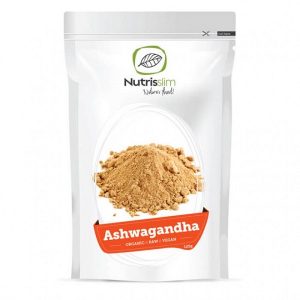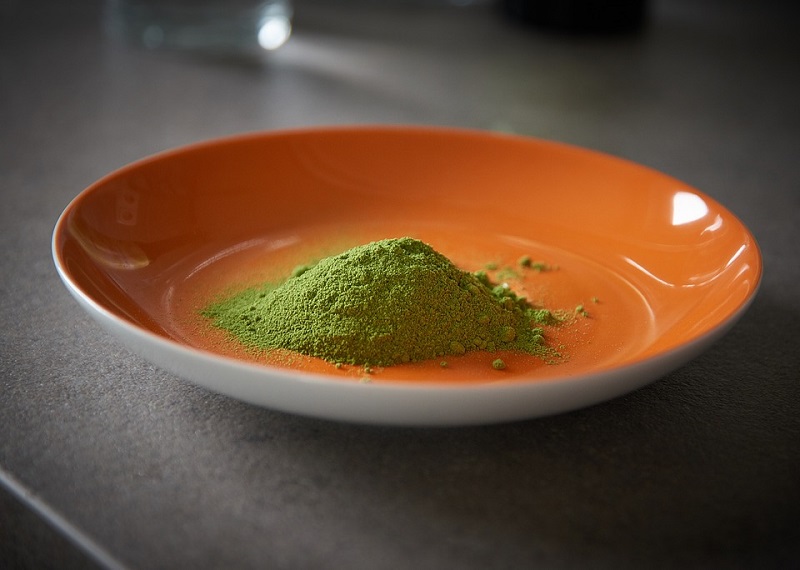Things You Should Know Before You Start Using Ashwagandha

Table of Contents
If you are struggling with stress or anxiety regularly, you might have tried different things just to treat your mental condition. For others, it will go for a run to override stress with endorphins. However, for others, writing in the journal to let emotions flow out of the body as well as onto paper is their way to overcome stress and anxiety. But, there could be something adaptogens may do for you in this area, particularly the one known as ashwagandha, which reduces both physical and emotional symptoms of stress.
Ashwagandha is also known as an Indian ginseng, which belongs to the family of nightshades. It has been used for thousands of years and recognized as a medicinal tonic when it comes to Ayurvedic medicine.
Below are some of things you should know about how ashwagandha works and how it can benefit you:
Ashwagandha Supports Stress and Anxiety
Cortisol is the stress hormone that is released from the adrenals, which helped the body mobilize a flight or fight response to any perceived imminent danger, freeing up some resources for a vigorous fight against the intruder or flight from the danger.

By nature, cortisol follows a daily rhythm, which rises in the morning to help mobilize the forces of the body for the daily requirements and reduces in the evening to enable the body to perform restorative processes like sleep. Cortisol is also a good short-term defense mechanism and can be an important part of the natural daily rhythm.
The modern human culture’s stress activates cortisol stress response chronically, which may impact delicate glucose or lipid balance. It also has an impact on the nervous system function, vascular integrity, and gastrointestinal membrane integrity.
Ashwagandha also promotes healthy cortisol levels and healthy inflammatory processes, which are stimulated in response to stress. It promotes healthy immune system function and can have a good benefit on your nervous and cardiovascular systems. Normal and healthy cortisol output also supports adrenal glands that enable the body to concentrate on one’s reproductive health.
Ashwagandha Supports the Nervous System
Ashwagandha supports the function and structure of the nervous system. It’s also considered to be a nootropic and neuro supportive herb. A nootropic herb is those that promote a healthy cognitive function.
Ashwagandha also supports one’s healthy nervous system function, which provides antioxidant support and stimulates the pathways in your brain for GABA, which is a neurotransmitter that is responsible to promote calmness and regulate muscle tone. Ashwagandha also supports a stable and calm mood and helps regularize the natural cortisol rhythm. Some studies also show that ashwagandha supports healthy sleep.
Ashwagandha Supports Your Reproductive Health
In your endocrine system, adrenals play a role and their functions are important for your survival while the reproduction isn’t. HPA axis as well as stress response are connected to fertility in men and sperm production and hormonal balance or fertility in women.

The body also produces cortisol from the same precursors that are used to make the reproductive hormones and when the body is under stress, it will produce cortisol rather than estrogen, progesterone, and testosterone.
Keeping a healthy cortisol level may free up such resources to be used for the reproductive hormones. HPA axis interacts closely with the production of the thyroid hormones in the body and ashwagandha supports healthy thyroid function, even if it hasn’t been explored clinically.
Ashwagandha and Its Possible Side Effects
There are no serious reported side effects in using ashwagandha once taken at usual doses, but because the dosage differs and depends on the supplementation form, it is best to follow the instructions. However, users should avoid doses that can cause indigestion, diarrhea, and nausea. Moreover, if you are on any prescribed medication, you must check for the interactions before taking any herbal supplement. Ashwagandha can increase sedative effects of the benzodiazepines and some depressants. It can also interact with some immunosuppressant medications.
Ashwagandha may reduce blood sugar and blood pressure, which can be a concern in other people. It can also cause some minor side effects like sleepiness and headaches. In addition, pregnant women must avoid ashwagandha since it can affect the body’s hormone levels that might endanger one’s pregnancy. High doses can also affect the thyroid function, but research is still limited.
How to Use Ashwagandha
Traditionally, ashwagandha can be taken in powder form mixed with honey, ginger, hot water or warm milk to boost digestion. But, consumers are more likely to head to any local health food supplements store and you can choose any powdered blend or a supplement in the form of capsules.
The powder may be added to the liquids like coffee or smoothies that you usually consume. You may also mix it with foods like peanut butter or almond. In a liquid form, you may add some drops to a glass of water. However, supplementation can make it easy and quick to reap the benefits of ashwagandha. Depending on your preferences, you have the freedom to choose which form of ashwagandha to consume.
How to Buy Ashwagandha Supplements?
If you are someone who wants to try ashwagandha, there are various options you can consider in the market. It comes in less of a concern as what part of the plant is used for the supplement. A lot of producers use the leaves of the plant for their supplements rather than being just the root. But, based on some studies, it’s best to use a product with high concentration and full spectrum root extract of ashwagandha.
Reading the product’s label is also essential for you to determine the amount of extract included in the formulation. Usually, capsules contain high concentration, so people might feel the herb’s full benefits more quickly with the capsule format.
Should You Try Using Ashwagandha?
Like in everything else, what works for others may not work for you. This is the reason why you must consult your doctor first before you try using a superherb like ashwagandha before you add it to your daily routine. If possible, you should also do your research.
Ginger and mint are proven to be effective home remedies for constipation among some digestive problems. Click on the link to read more infromation.










 Who is at Risk of Developing Anorexia and Other Eating Disorders?
Who is at Risk of Developing Anorexia and Other Eating Disorders?  Discover the MCT Oil Magic
Discover the MCT Oil Magic  Potential Consequences of Obsessive Compulsive Disorder
Potential Consequences of Obsessive Compulsive Disorder  Ophthalmic Examination 101
Ophthalmic Examination 101  Horrible Dangers of Untreated Periodontal Disease
Horrible Dangers of Untreated Periodontal Disease  Discover the Flavor Revolution with Lee Kum Kee Chili Crisp Oil
Discover the Flavor Revolution with Lee Kum Kee Chili Crisp Oil  Coconut Extract: The Secret Ingredient Revolutionizing Health and Wellness in 2024
Coconut Extract: The Secret Ingredient Revolutionizing Health and Wellness in 2024